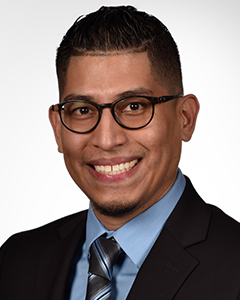It’s hard enough to decipher complicated medical terminology and “doctor speak,” but when patients and providers don’t speak the same language, communication can seem impossible.
A patient’s well-being and health may depend on whether they can understand crucial diagnosis or treatment information. They’ll also need to clearly explain their symptoms and how they’re feeling. So, bridging the language gap between patients and their providers is pivotal. What can be done to break down language barriers in healthcare?
Challenges for Patients and Providers
Difficult communication with a healthcare provider can cause anxiety and stress for patients. Stress affects all systems of the body and can trigger or aggravate many diseases and conditions. If you’re already unwell when you visit the doctor, the stress of a language barrier could make you feel worse.
Research shows that for patients and providers alike, not being able to communicate also can cause a strong sense of dissatisfaction. Patients may feel like they haven’t gotten what they wanted or needed. As a result, they may decide not to seek care in the future, further worsening existing disparities around access to healthcare.
A language barrier also may frustrate healthcare providers if they haven’t been able to provide their patients with optimal care. It’s also more difficult to build a rapport with patients who speak a different primary language, an important aspect of practicing medicine and developing trust. In one study, more than 94 percent of nurses reported that it was very important for their work environment and communication to understand the language of their patients.
Language Barriers and Patient Health
The problems posed by a language barrier extend beyond stress and frustration. Providers rely on getting an accurate medical history from their patients to provide good care. If they can’t, it can cause a misdiagnosis, which can lead to an inappropriate treatment plan.
Patients also can make mistakes that impact their health because of miscommunication. A telephone survey of 1,200 Californians conducted in 11 languages found that, among patients who did not speak the local language:
· 49 percent had trouble understanding a medical situation
· 35 percent were confused about how to use medication
· 42 percent had trouble understanding a label on medication
· 16 percent had a bad reaction to medication due to a problem understanding their healthcare provider’s instructions.
Ways to Overcome Healthcare Language Barriers
Fortunately, there are steps patients can take to help overcome language barriers. Some of the things you can do to bridge the communication gap include:
● Be proactive when choosing a healthcare facility. Ask whether the office or hospital offers interpreter services, such as those provided by Orlando Health free of charge when you ask for them when making an appointment or on arrival. You may also want to find out whether there are staff members who speak your language at the facility. Community organizations, friends and even insurance companies can be good resources for finding a facility where your preferred language is available.
● Turn to technology. For those with a smartphone, translation apps can be useful to help you and your provider understand each other. You also may be able to use your phone for translation services if an in-person translator isn’t an option.
● Don’t be afraid to ask for help. If you feel like a language barrier is preventing you from getting good care, you should feel empowered to advocate for yourself or a loved one by asking for a translator or even switching to a different provider.
Choose to Stay in Touch
Sign up to receive the latest health news and trends, wellness & prevention tips, and much more from Orlando Health.
Sign Up










